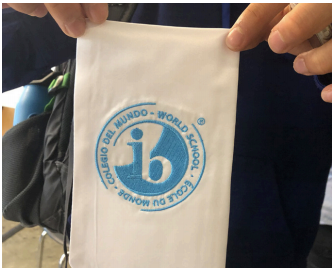Letter from the editor: it’s time to end Lincoln’s academic toxicity
Though Lincoln students work hard in academic endeavors, it doesn’t have to trump mental health and the personal well-being of students

To our students, staff, parents and dedicated readers,
Over my time at Lincoln, I have walked the halls, talked to people, taken classes and have experienced the highs and lows that our school has to offer. From our asbestos filled bathrooms, to our lead-contaminated water, to our overcrowded classrooms we have felt the lows of Lincoln. But, we have also learned from incredible teachers, supported our friends when they’re in a low place and celebrated our successes.
But over my time, I have also realized that this celebration of success and our moments when we feel low come hand in hand, or even at the same time.
After four years of talking to peers, I’ve realized more often than not, Lincoln sets a standard for students that pushes us against ourselves or each other.
I had the choice to come to Lincoln. My parents told me they thought the school had a lot to offer (which I can definitely say it has in my time) and that “it was cool to be smart.” Before coming here I wondered how could that be, when being “smart” at most schools means you’re a stereotypical nerd or geek.
It didn’t take me long to understand that it wasn’t “cool,” but was necessary in order to play the game of school. We students, our administration and staff have all cultivated an environment of academic excellence. From my first senior assembly I witnessed a student who was ASB president, ran several clubs, won multiple merit awards, scholarships and went on to a top ivy league school. This is what defined what it meant to be a top academic student.
This idea that it was “cool to be smart” manifested into a pathway over the past four years: be a president of a club, get perfect grades, scores, essays and make sure you have a packed resume.
Then in order to achieve this, why does this mean that we don’t get sleep? Why do we obsess about a grade that doesn’t reflect our intellectual ability? Why do we feel the need to fit a “perfect” standard or expectation when we don’t really have to?
Far too many times at Lincoln, I’ve heard students have “mental breakdowns,” panic attacks and struggle men- tally in school. I myself have succumb to these moments. Yet, we continue to ask one another:
“What grade did you get?”
“I think I bombed that test.”
“Where are you going?”
We never really spent the time supporting our struggles, and instead did what we could to come out on top. We compare, judge and let our academic achievements define us. We let this deter our health instead of thriving.
This is toxic. We let the amount of IB classes we take define what an “academic, smart student” is, and rarely think about how the non-full IB students are supported. We celebrate awards, accolades and successes constantly hearing the same names over and over again, without trying to recognize the other efforts of students.
We are told our grades don’t define us, that these scores and a name of a school don’t determine our future. Then why do we push ourselves to the point of exhaustion and anxiety in order to feel like we achieve something in the classroom?
This culture of comparison, judgement and trying to achieve everything won’t go away overnight. But that doesn’t mean it has to continue. Students. Staff. Parents. Work to support yourselves, work to support others and think about your well-being before a grade. It’s crucial that we all recognize this, then work to actually stop it in its tracks.
As your Editor, I have pushed myself like this in many ways. I cared about what others thought of me and were achieving, instead of thinking about my own well-being. I hope future students can learn from those lessons as I have.
In the newspaper, my team and I have worked to share news beyond the typical success. We hear your comments, cor- rections, questions and disagreements. We have worked to provide all the news we can, and work to better our mistakes.
For my team, thank you for your hard work, support and the wonderful memories. No one can do this on their own, and each issue of the newspaper happens because a team of dedicated students have poured their hearts into this effort.
Thank you readers and supporters.Thank you staff past and present. Take care of yourself, Lincoln.
Sincerely,
Sagarika Ramachandran
